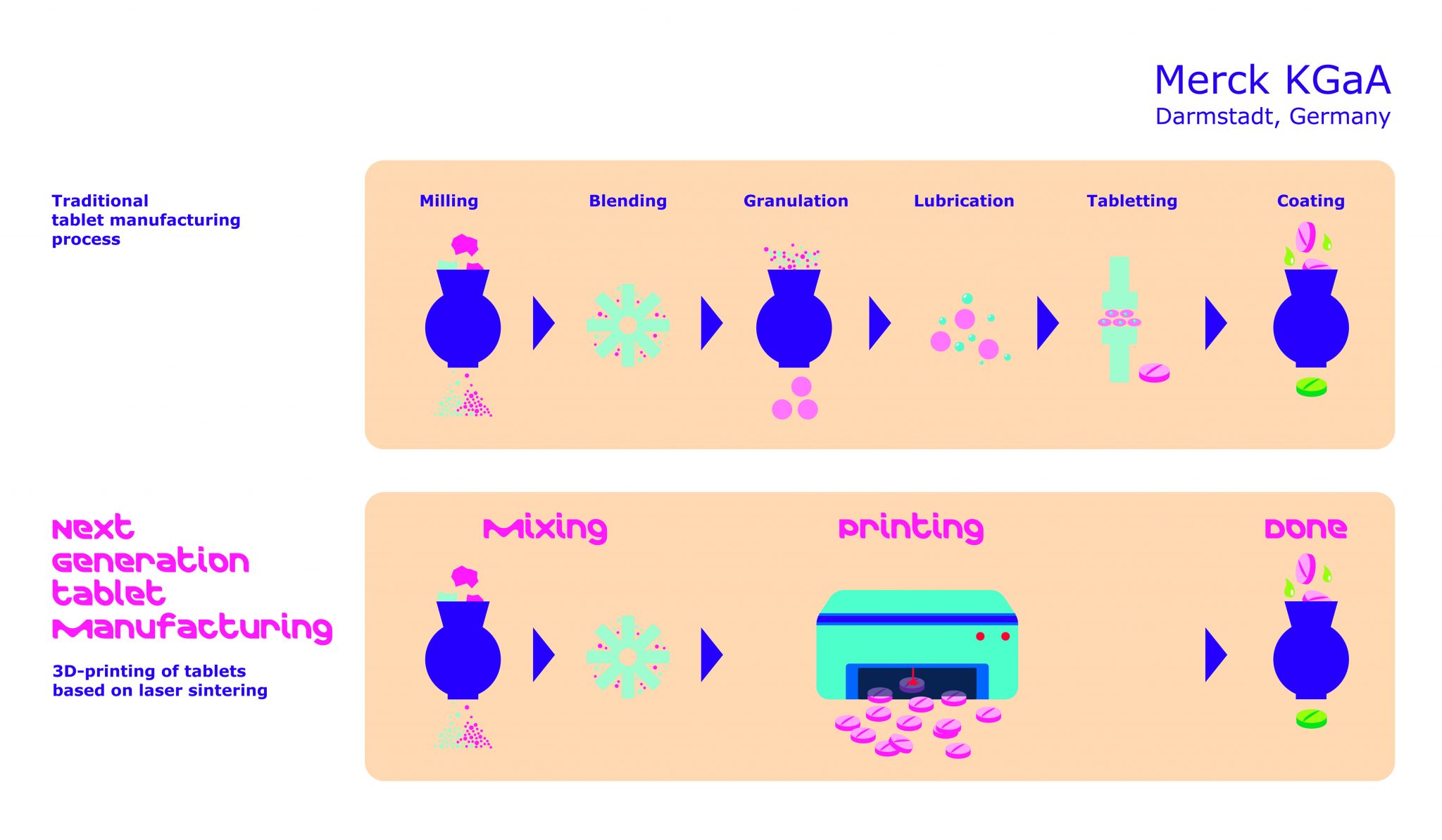Merck, the global pharmaceutical company, has announced plans to work with AMCM, an EOS Group company that builds custom additive manufacturing machines. The two companies will work on developing and producing 3D printed tablets, first for clinical trials, then later for commercial manufacturing.
Next-generation tablet manufacturing
Isabel de Paoli, Chief Strategy Officer at Merck, said, “Our partnership with AMCM / EOS has the potential to revolutionize the way tablets are produced. It will be a massive move towards digitalization of the industry,”
The goal is to develop drugs using powder bed fusion, whereby a laser melts and fuses powder together layer by layer. As reformulations can be avoided throughout the pharmaceutical development and commercial production, AM is expected to make tablet manufacturing faster and cheaper. Moreover, 3D printing also brings the possibility to adapt to patient needs.
Marie Langer, CEO of EOS, said, “We are excited to support Merck on its innovation journey. This cooperation combines Merck’s formulation competences in Healthcare as well as its excipient expertise in Life Science with our long-standing additive manufacturing know-how.”

Recent researches on drug additive manufacturing
FabRx, a British specialist biotech company, has already completed a clinical study on 3D printed medicine for children with rare metabolic disorder, maple syrup urine disease (MSUD). The British company printed chewable tablets, offering a rapid and automated alternative for the preparation of tailored therapeutic dosages.
Recent research at St. John’s University, New York, found 3D printed tablets also could deter opioid abusers from misusing pharmaceuticals. The team designed and tested the tablets made of drug-loaded polymeric filaments, prepared using hot-melt extrusion (HME).
University College London (UCL) researchers have discovered an unexpected chemical reaction whilst 3D printing pharmaceuticals. After utilizing Stereolithography (SLA) to stack four drugs designed to treat high blood pressure in one pill, Amlodipine was found undetectable upon experimentation.
The nominations for the 2020 3D Printing Industry Awards are now open. Who do you think should make the shortlists for this year’s show? Have your say now.
Subscribe to our 3D printing newsletter and follow us on Facebook and Twitter for the latest additive manufacturing updates.
Visit our 3D Printing Jobs board to find out more about opportunities in additive manufacturing.


